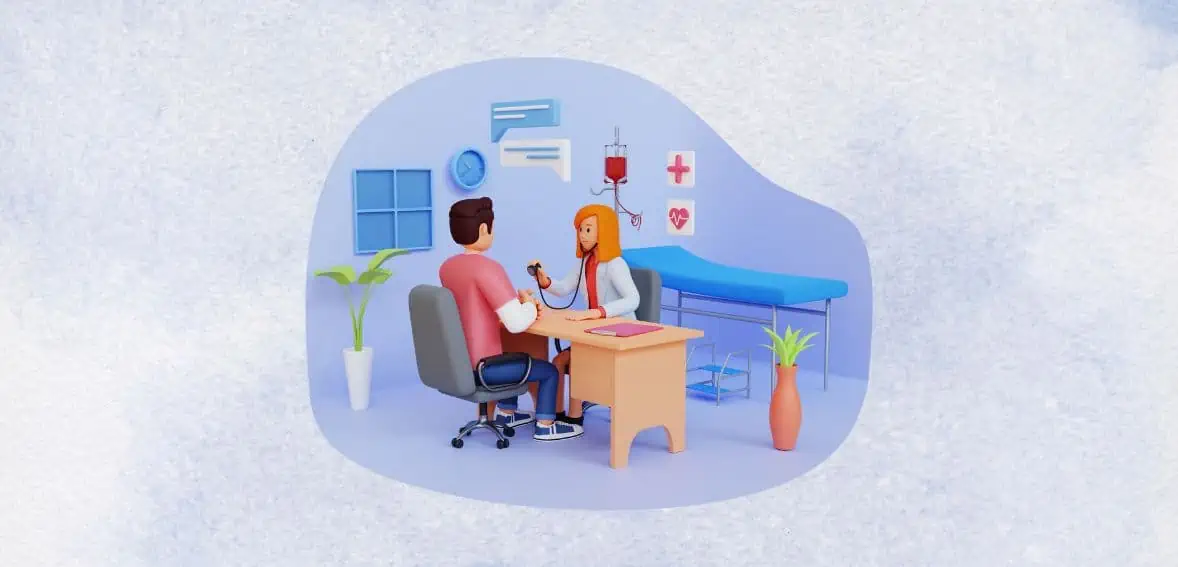Physicians in private practice face the dual challenge of delivering top-notch patient care while managing the complexities of running a business. The operational aspects can be both costly and time-consuming and divert their attention from patient needs. Many healthcare providers turn to Practice Management Systems (PMS) to streamline operations.
A PMS can automate numerous administrative tasks that were once manual and labor-intensive. By leveraging standardized electronic transactions, the right PMS can significantly enhance efficiency, especially in managing a practice’s revenue cycle. PMS software is a comprehensive tool that automates and refines various administrative and billing processes. Let’s understand the fundamentals private practice physicians should understand about medical practice management systems.
What Is A Practice Management System?

In simple terms, practice management software is a tool designed to facilitate the efficient management of healthcare businesses. To understand its practical implications, consider it as a digital replacement for various paper-based processes within a clinic.
An effective practice management software automates and digitizes numerous day-to-day tasks in running a medical practice. This includes a digital calendar, effortless appointment scheduling and cancellations, and secure storage of comprehensive patient information. The primary goal is to enhance operational efficiency within medical or health clinics.
This software is meticulously crafted by the practice management system vendors to streamline various aspects of daily operations, ensuring smooth functioning, professionalism, and profitability. Practice management software is pivotal in coordinating operational, financial, and administrative tasks, serving as the adhesive that binds clinics together. The scope of practice management extends beyond medical service delivery. It encompasses key elements of running a practice, including
- Financial Management and Billing,
- Operational Efficiency,
- Administrative Duties,
- Information Technology,
- Human Resources,
- Regulatory Compliance.
Understanding Practice Management Software Deployment And Functionalities
Here are the main components of the Practice Management System in detail:
Financial Management and Billing
Keeping track of finances is crucial. A PMS is a tool that helps medical practices manage their money matters efficiently. PMS does this by monitoring various financial activities such as recording payments yet to be received, handling bookkeeping tasks, and overseeing employee payroll.
Moreover, the system takes care of billing responsibilities, ensuring that insurance claims are submitted correctly and promptly. It also keeps tabs on incoming payments and takes care of co-payments and deductibles from patients. Essentially, a PMS streamlines the entire financial aspect of running a medical practice, making it easier for healthcare professionals to focus on patient care.
Reporting and Analytics
Understanding the data generated by a medical practice can provide valuable insights that can lead to better patient care and improved operational efficiency. PMS software plays a pivotal role in this regard by analyzing practice data. It sifts through the information to identify patterns, trends, and areas for improvement.
This data-driven approach allows healthcare providers to optimize their workflows, ensuring that resources are utilized effectively. Additionally, by tracking patient outcomes, the system helps evaluate the effectiveness of treatments and interventions. In essence, reporting and analytics provided by a PMS empower medical practices with the information needed to make informed decisions that benefit both patients and the organization.

Inventory Management
Managing the inventory of medical supplies and equipment is another critical aspect of running a healthcare facility. A PMS simplifies this task by providing tools to oversee the entire inventory process. This includes placing orders for necessary supplies, keeping track of stock levels, and managing the distribution of items.
By centralizing inventory management, the system ensures that medical practices have the necessary supplies on hand when needed, reducing the risk of shortages or overstocking. This streamlined approach not only saves time but also helps in controlling costs associated with inventory management. Overall, the inventory management feature of a PMS contributes to the efficient and effective operation of a medical practice.
Appointment Reminders and Scheduling
Efficient appointment management is essential for any healthcare practice to run smoothly. A PMS offers a comprehensive solution, enabling staff to schedule, organize, and oversee patient appointments effortlessly. Beyond just setting up appointments, the system also sends timely reminders to patients.
These reminders serve as a helpful nudge, reducing the likelihood of patients missing their appointments or arriving late. By enhancing patient adherence to scheduled visits, the PMS software minimizes disruptions and fosters a more satisfying experience for patients. Likewise, a PMS’s appointment scheduling and reminders feature is vital in optimizing patient flow and enhancing overall satisfaction.
Electronic Health Records
The management and accessibility of patient health records are critical components of healthcare delivery. An EHR is a digital repository containing a patient’s comprehensive medical history, maintained and updated by healthcare providers over time. This digital record contains various elements such as demographic information, progress notes, identified health issues, and prescribed medications.
A PMS enhances the utility of EHR by integrating it seamlessly with administrative functions. This integration ensures that healthcare providers can access all relevant patient data, facilitating informed decision-making and coordinated care. Essentially, EHR integration within a PMS streamlines the documentation process and enhances the quality of patient care.
Patient Management
Effective patient management is at the core of delivering quality healthcare services. A PMS offers robust features to streamline various aspects of patient interactions within a medical practice. From managing the check-in and check-out process to tracking the frequency and nature of patient visits, the system provides a centralized platform for handling these tasks efficiently.
Furthermore, the PMS simplifies insurance and billing, ensuring that administrative processes do not delay the delivery of care. By storing relevant patient information securely and making it readily accessible, healthcare providers can deliver accurate and timely care.
Patient Portals
In today’s digital age, access to personal health information at one’s fingertips is becoming increasingly important. A PMS offers a patient portal, a secure online platform designed to provide patients with convenient 24/7 access to their medical records. This portal lets patients log in using a unique username and password to view essential health information, such as medical records and test results.
Additionally, the portal facilitates various other functionalities like appointment scheduling and direct communication with healthcare staff. The PMS patient portal promotes transparency, encourages patient engagement, and enhances the healthcare experience by empowering patients with access to their health data.
Referral Management
Coordinating referrals between primary care physicians and specialists is a complex yet crucial aspect of healthcare management. A PMS equipped with referral management capabilities simplifies this process by providing a structured system for tracking and managing patient referrals.
This system ensures that relevant patient data is synchronized seamlessly between referring physicians and specialists, streamlining the referral process. Moreover, it enables healthcare providers to monitor patient progress after referrals and track the outcomes effectively. By centralizing and automating referral management, the PMS software contributes to improved communication among healthcare teams and enhances the continuity of patient care.
Document Management
The efficient handling and storage of patient documents and medical records are vital for maintaining the integrity and confidentiality of healthcare information. A PMS offers robust document management features that automate various aspects of document handling, from creation to storage and distribution.
By leveraging advanced technology, the system enhances the accuracy and consistency of document management processes. Additionally, it incorporates security measures to protect sensitive patient information, ensuring compliance with privacy regulations. Overall, the document management capabilities of a PMS contribute to a more organized, secure, and efficient healthcare environment.
Benefits Of Using A Practice Management System

The healthcare sector is ever-changing, with evolving regulations and codes. Understanding the complexities of health insurance, from employer plans to Medicare and HIPAA compliance, can be challenging. A robust PMS ensures swift adaptation to these changes.
As we have pointed out earlier, physicians, healthcare providers, and doctors primarily focus on patient care, not administrative tasks like appointment scheduling. A reliable PMS offers valuable time-saving benefits in the following areas:
- Enhance Patient Experience and interaction:
Practice management software with video capabilities allows patients to connect with their doctors conveniently, no matter their location or circumstances. This feature benefits those facing challenges like transportation, tight schedules, childcare, or limited mobility. Patients can easily contact their healthcare providers via email, text messages, or the software.
Additionally, most PMS offers a patient portal. This online platform grants patients access to their medical information, including prescriptions, educational resources, and test results. Patients can better understand their health using these portals and make informed decisions to improve their well-being.
- Focus on Patient Care:
A PMS streamlines medical operations, allowing healthcare providers to prioritize patient care over administrative tasks. With automated scheduling and insurance billing, staff members can allocate more time to patients without feeling rushed by their work responsibilities.
- Enhances Profitability, Efficiency, and Productivity:
The PMS automates standard functions, such as inventory tracking and appointment reminders, boosting overall efficiency. Automated inventory replenishment ensures supplies are always available. With seamless record management and patient history, healthcare facilities experience increased productivity.
- Minimizes Errors:
Unlike handwritten notes, the PMS reduces errors in documentation. The shift towards paperless record-keeping, facilitated by tablets and smartphones, ensures efficient document management through the PMS software.
- Reduce Missed Appointments:
Missed appointments can disrupt a clinic’s workflow and cost money. In 2023, a no-show in the US healthcare system was estimated to cost around $200 per patient. Practice management software helps reduce these no-shows by implementing effective reminder systems.
- Effortless Information Updates:
Integrated systems streamline the process of updating staff on patient and insurance details. This minimizes errors and caters to healthcare practices of various sizes.
Leading PMS solutions offer comprehensive reporting and analytics, aiding you in efficiently overseeing your practice. Moreover, they should seamlessly integrate with other vital software you use.
How Do You Find The Right Practice Management System?
Choosing the right PMS system depends on your specific requirements. Here are some factors you should consider while choosing the right PMS:
- Evaluate Your Current Workflow:
Discuss with your team to understand the existing processes. Identify areas that can be enhanced. Your staff, with their diverse roles, can offer crucial insights. Involving everyone in the decision-making boosts team morale and job satisfaction.
- List Essential Features:
Compile a list of features needed for each role, such as doctors and accountants. This list will guide you when discussing with vendors and during the evaluation phase.
- Seek Insights from Peers:
Connect with a practice manager who recently transitioned to a new PMS. Understand their challenges, learn from their experiences, and gather recommendations. It’s also beneficial to converse with doctors and administrative staff from the same clinic for diverse viewpoints.
- Research Market Leaders:
Explore prominent PMS providers online. Compare their features and functionalities. Shortlist a few vendors that align with your needs for a detailed evaluation.
- Engage with User Communities:
Visit forums and user groups associated with the shortlisted vendors. Active and well-maintained forums often indicate that the company values customer feedback, a positive sign for a fruitful partnership.
Conclusion
Practice Management Systems are indispensable tools in modern healthcare, streamlining administrative tasks and optimizing operational efficiency. By automating billing, scheduling, and reporting, PMS allows healthcare providers to refocus their energies on delivering superior patient care. The comprehensive functionalities of PMS, from inventory management to electronic health records, offer a cohesive approach to managing diverse aspects of medical practices.
Furthermore, PMS enhances patient engagement through portals and digital communication, fostering a more transparent and accessible healthcare experience. To harness the full potential of a PMS, healthcare professionals must carefully evaluate their specific needs and choose a system that aligns with their operational requirements. Ultimately, investing in a reliable PMS drives efficiency and elevates the standard of care delivery in healthcare settings.
Frequently Asked Questions
Q: What exactly is a PMS in the healthcare sector?
A PMS is crucial for automating a healthcare practice's financial operations. This software simplifies and automates administrative tasks, making electronic transactions and workflows more efficient.
Q: Can you provide an example of a PMS used in healthcare?
Certainly, Rectangle Health's Practice Management Bridge is a notable cloud-based solution. It aids healthcare providers in enhancing patient engagement, managing payments, overseeing revenue cycles, and ensuring compliance. Key features include:
– Digital patient registration forms
– Personalized text message notifications
– Touch-free payment options
– Automated payment record updates
– Efficient workflow managementQ: How does a practice management system contribute to patient care?
A PMS serves as a digital tool that supports healthcare practices in handling billing and administrative activities. This system facilitates appointment scheduling, maintains patient data, and manages insurance claims efficiently.
Q: What features should a comprehensive practice management system offer for healthcare providers?
While specific needs may differ among practices, essential features of a robust PMS typically include:
Provider appointment scheduling
Medical billing capabilities
Online patient portal access
Electronic prescription functionalities
Patient check-in processes
Detailed financial reporting and performance analysis, among other functionalities.


